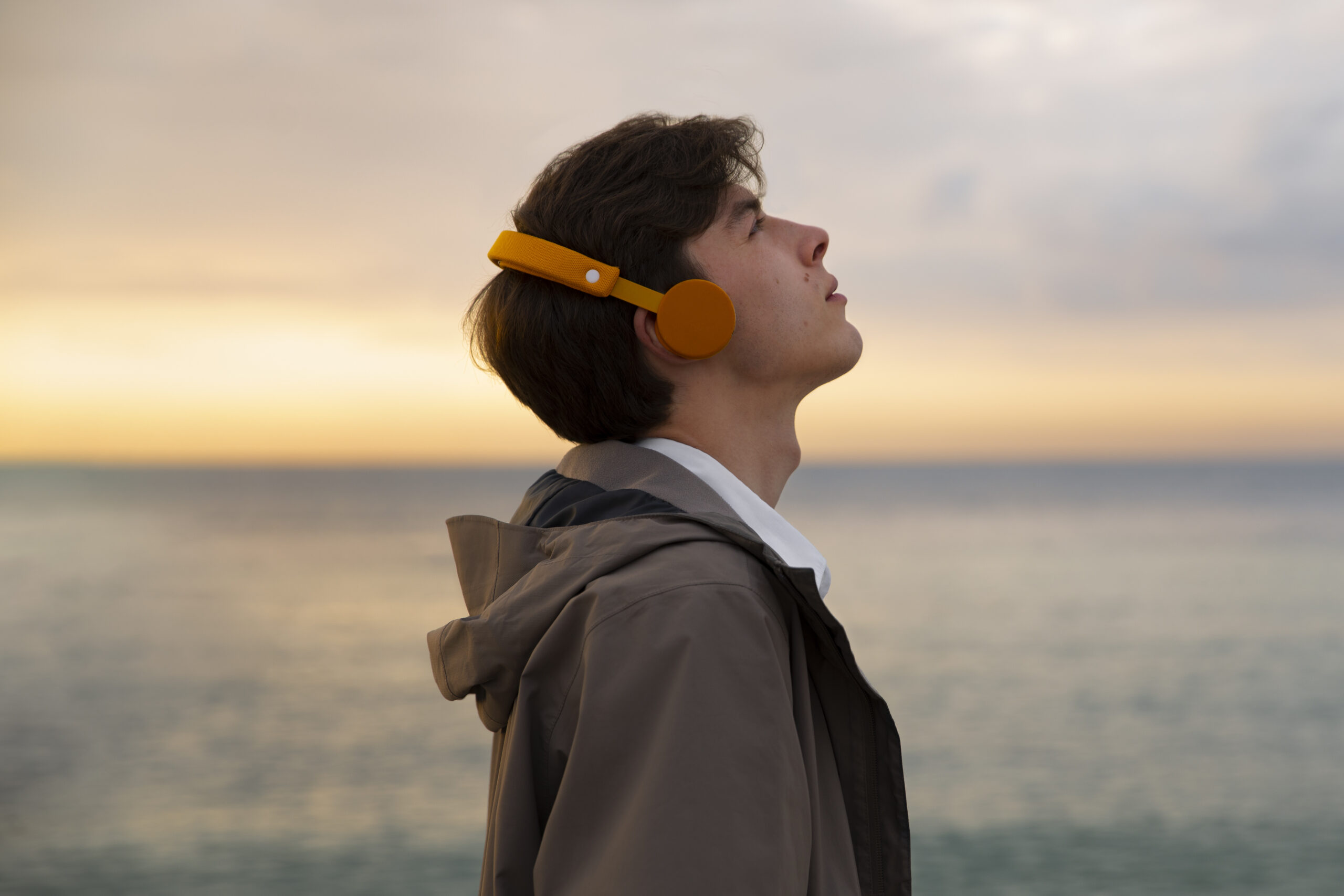ocean sounds for sleep In present-day society, having a good night of sleep can be more challenging than ever. More and more individuals are seeking natural sounds to settle their minds while helping them sleep. Ocean sounds are often listed as one of the sound options available. The soothing sound of waves crashing, the slow movements of the tide, and the natural sounds of a beach all provide a setting for relaxation and calm.ocean sounds
Modern usage of the keywords “ocean sounds for sleep” has become more visible as more people learn how to listen to the sea’s soundtrack as a natural therapy for them. One question to ask is: Did you know the ocean sound can produce two different opposing experiences? While many experience ocean sounds as very relaxing and inducing sleep, many others reporting the ocean sound will alert them or keep them awake. The common question then becomes: Why do ocean sounds enable some people to sleep and keep others awake?
click here to read amazing post like this
Top 10 Music for Sleep Tracks That Work—and 2 You Should Avoid
10 Natural Foods That Help You Sleep Quickly
7 Powerful Sleep Music Types to Help You Sleep Fast and Wake Up Fresh
This article will discuss 7 reasons that ocean sounds can either enhance sleep or keep you awake, noting the science of sound therapy, personal preference, or environmental factors. Related search terms (e.g. “ocean sounds for relaxation,” “ocean waves sound for sleeping,” “ocean sounds white noise,” “beach sounds for sleep,” “calming ocean sounds”) will be included as we will be investigating this topic from a variety of angles.
By the end of this article, you will have a better understanding of how ocean sounds can impact your sleep and how you can utilize ocean sounds to sleep better or avoid waking unintentionally.
Reason 1: The natural rhythm of ocean waves can transform into a relaxing heartbeat
One of the largest reasons ocean sounds help many people sleep is the natural rhythm of ocean sounds. The crashing of the waves is a sound that’s consistent and provides a white noise backdrop. This rhythmic ocean sounds closely links to a relax heartbeats rhythm. The more you listen to ocean sounds the more it can help slow down your heart rate and breathing by linking to the falling asleep state of relaxation.
Ocean sounds for relaxation act as a form of auditory therapy that encourages the body and brain to move from alert or awake to rest or sleep. The steady and repetitive nature of ocean waves can have a hypnotic effect that can silence racing thoughts and lessen levels of stress.
For some individuals, the constant changes in volume and pattern of ocean waves sound for sleep may create a sense of excitement rather than calmness. For these individuals heightened awareness may precede relaxation, and ultimately sleep. In contrast, those with a very low tolerance for unpredictable nature of ocean sounds could have difficulty relaxing due to sleep deprivation from waking up to ocean sounds that were unsettling.
Knowing your personal response to these sounds is of utmost importance in your determination of whether ocean sounds for sleep is beneficial or not.
Reason 2: Ocean Sounds Mask Noise, Help to Create a Calming Environment
A second reason ocean sounds help sleep is because they can effectively cover up distracting sounds. Living in urban, congested, or noisy environments means the likelihood of intermittent loud noises such as sirens and busy traffic, is increased. Unpredictable and sudden sounds are disruptive to sleep, and ocean sounds provide steady and continuous sound the brain can tune out while masking these interruptions.

Beach sounds for sleep can create a sensory buffer that allows for deeper, more uninterrupted sleep by blocking out sudden spikes in noise pollution. This background buzz is relaxing and provides a calm early sleep environment, which is paramount for you deep restorative sleep cycles
On the flip side, if the volume is high, or the sound source is of a very sudden and sharp or irregular wave crash as part of its natural content, it can actually do the exact opposite! Instead of masking out disruptive sounds it can, actually add to that sensory input and ultimately keep some listeners awake.
The key to deriving the most sleep benefits from ocean sound therapy is to calibrate the sound volume to your space, and select calm ocean sounds that suit your environment and your sensitivity.?
reason 3 Persistence or Personal Associations Are Important Factors In Assessing If Ocean Sounds Are Relaxing or Stimulating
Secondly, how you personally persist or associate beach sounds with past experiences becomes very important in terms of their sleep impacts. For many people the sound of an ocean wave brings about pleasant memories of a beach, relaxing, and the peace of mind that sometimes accompanies holidays on the beach. All these feelings and memories can deeply calm you when using ocean sounds for sleep.
Again, the ocean for some people may also mean anxiety, storms, and unpredictable weather. These connections can create more alertness to ocean sounds, affecting your relaxation.
Your brain may acknowledge beach sounds for asleep and affect sleeping, improve, or change it in a way, so it communicates danger, and you can’t calm down.
So it’s good to be aware of your emotional relationships to ocean sounds when using them for sleep.
Reason 4: Ocean Sounds can be used as White Noise during deep sleep
Ocean sounds or white noise, [is a pretty commonly used method for many people to block out more disruptive environmental sounds. When you think of ocean sounds, you think of a consistent natural background that falls within the sound range used to try to stop sudden or noise environmental disturbances, whether it be animal or machine noises.
Research has illustrated that white noise helps to improve quality of sleep, stabilizes sleep environment, stops awakenings, etc.
Despite all that stuff, some individuals are led to be partially sensitive to some frequencies or tones in these ocean sounds white noise. If the listening environment enters sharp wave crashes, or if you encounter sudden loud moments, these noises can serve as stimuli that may rather disrupt sleep than help it.

Finding the right balance of relaxing ocean sound recordings and usage with white noise machines requires systematically experimenting to find the best balance for deep sleep.
Reason 5: Biological Sensitivity to Sound Determines Sleep Quality
Definitely, some individual auditory systems respond differently to sounds. biologically-based sensitivity to particular frequencies and to volumes determines whether ocean sounds can potentially prepare you for sleep or whether they will activate you to a waking state.ocean sounds nature
Individuals with greater sensitivity to sound may find more gentle ocean sounds relative to their sensitivity to be a activating stimulus, while others with less sensitivity find ocean sounds relaxing.
Understanding your auditory sensitivity to sounds can help target your use of calming ocean sounds to meet your own auditory sleep needs.
Reason 6: Environmental Context Influences the Effects of Ocean Sounds with Sleep
Just as important as the sound is your sleeping environment. Listening to ocean sounds in a quiet and dark room may magnify the relaxing and beneficial potential of them than listening to them in a loud or lit room.
Of course, while the sounds of the ocean itself is more important, the device you are using can also be relevant. If the sound is from poor speakers or harsh sounding quality, it may come off as irritating, defeating the purpose, and perhaps keeping you awake.ocean sounds nature
Considering your environment and the equipment used to play ocean sounds will improve your ability to gain the relaxing and beneficial effects of ocean sounds for sleep.
Reason 7: The Timing and Length of Listening Effects Whether Ocean Sounds Are Helpful or Hindering with Sleep
Finally, it is important to consider the timing and length of your listening. When you are using ocean sounds as a means of relaxation prior to sleep, this is preparation for sleep somewhat.
However, if you start at a high volume and listen for a longer than desired period over the night, it is possible these sounds, to a degree, would simply allow your alertness or habituation to override their effects again, hindering their effectiveness.ocean sounds nature
Setting timers or limits on your output would help you to maximize the positive effects of ocean sound therapy.

1.The Science of Ocean Sounds and Sleep: Your Brain’s Reaction
Examine how the brain experiences ocean sounds and why this pattern of natural sleep can either relax or stress us. Discuss neurological processes, specific neurotransmitters including serotonin and melatonin, and sound cycles.ocean sounds nature
2.Ocean Sounds and Sound Therapy: Guidance and Practical Advice
A practical review of how to use ocean sounds for sleep (and relaxation). Discuss how to navigate through a range of ocean sounds, the best times of day, volume ranges, and potential references to ocean sounds apps and devices (e.g., white noise machine).
3.Ocean Sounds compared to other natural sounds for sleep
Compare ocean sounds to other popular ‘nature sounds’ in the context of supporting sleep, e.g. rain, wind, birds, etc. Discuss pros and cons of sleep using these sounds, and what may lead some people to prefer one over the other, and how each sound may contribute to sleep quality in different ways.ocean sounds nature
4.The Importance of Culture and Personal Experience in the Response to Ocean Sounds
While ocean sounds may seem like a uniform category, the background, experiences, and associations of the individual play a big role in the distinction between calming and stimulating soundscapes. Did you sleep near or visit the ocean as a child? I would suggest that the outcome of this context plays a role in your personal experience with ocean waves. A positive exploration of the importance of personal experience can be amplified with examples of how personal experience determines emotional responses to nature sounds.ocean sounds nature
5.Why Ocean Sounds are Important in Mindfulness, Meditation, and Sleep
When using ocean sounds as a part of mindfulness practices or a meditation to help with sleep, we are once again in the business of creating the conditions to minimize stress and promote restful sleep patterns. Provide practical examples of how ocean sounds work directly in creating mental calmness and sleep-inducing conditions.
6.Potential Negative Uses of Ocean Sounds: When Not to Use
Outline circumstances where ocean sounds can disrupt the sleep process or lead to discomfort; for example, in individuals with sound-sensitivities of persons diagnosed with anxiety disorders and or PTSD. Provide recommendations on how to know when ocean sounds negatively impact sleep environments that require alternative sounds.ocean sounds nature
6DIY Ocean Sounds. Your Personalized Sleep Companion Sounds
Provide readers with a guide on making or recording their own personalized ocean sounds for sleep. Provide a summary of why your own recorded sounds would be more effective when using ocean sounds and provide readers with simple options or cheap apps to record and listen to soothing ocean sounds that are compiled only for your preferred sleep experience.calming ocean sounds
How Different Ocean Sounds Impact Your Sleeping Experience
Not all ocean sounds are equal with respect to sleep. They can have a different impact on whether they helps you sleep or prevents you from sleeping.
Gentle, rhythmic waves that softly lap the shore are likely to be the most relaxing and natural form of white noise, as this sound resembles for many people the soothing beat of a steady heart, or simply, the simple sound of “calm”. The smoothness of this sound aids to help the mind and body to slow down. When you have calming ocean sounds you are allowing your brain to enter into a restful state, potentially assisting you to get better sleep overall.calming ocean sounds
Conversely, more aggressive sounds like crashing waves, or sudden splashes can be somewhat non-relaxing. For many people, the sharpness of sound encourages alertness or possibly memories of storms or danger. Those sharp sounds can also prevent your body to sleep soundly with some unpredictable natures of sounds causing micro-awakening that could disrupt the deeper stages of sleep.calming ocean sounds
There are many applications and sound machines that let you customize the ocean soundscapes, so you can find the perfect level of sound for your taste! You may want to try out the different types of ocean sounds like distant waves, seagulls, or peaceful tides, to see which enhances your sleep most effectively.
Knowing how these different categories of ocean sounds will affect your quality of sleep gives you the ability to make more deliberate choices about your sleep routine. For instance, it may be simply a sound of calming ocean sounds, rather than more stimulating ocean sounds, that will help unlock more restful nights.calming ocean sounds
conclusion
ocean sounds Since ancient times, ocean sounds have been appreciated for their calming and restorative effects on the mind and body. As we discovered throughout this article, these natural soundscapes can provide a wonderful aid to sleep for many people. The rhythmic crashing of waves, the soothing ebb and flow of the ocean, and the gentle whispers of the beach make up an auditory landscape that reflects natural patterns of regulation. This is true even “ocean sounds for sleep” has become a favourite search term for anyone looking for natural sleep aids.ocean sounds
ocean sounds It is vital to also recognize that the effects of ocean sounds are not unequivocally positive. People can experience heightened alertness from ocean sounds or often simply find ocean sounds difficult for them to sleep. Like with everything else, there are numerous factors at play with our dual capacity to be lulled or irritated by ocean sounds: the way our brains neurological systems respond to the sounds, the way we associate the sounds personally, the environment we are in while listening to ocean sounds, and the sensitivity of the listener etc..ocean sounds
calming ocean sounds Many factors can help you understand how you can use ocean sounds in a way that allow you to reap their desirable aspects.ocean sounds
The natural rhythm of ocean waves may slow your heart rate and calm your mind, ideally placing you in a state conducive to sleep. In contrast, loud ocean sound crashes and irregular waves may trigger your senses keeping you awake.ocean sounds
Individual experiences also play a role. Some people have positive affections associated with listening to ocean sounds – perhaps they are remembering a peaceful night while on vacation. This association may help the relaxation effect, while for others this same sound may be associated with something more anxiety related, and could increase alertness while listening to ocean sounds. Emotional connections are an important variable that can dramatically influence how your brain processes the sounds you hear and how you sleep.ocean sounds
Another aspect of these sounds that is important is how you are using them. If you listen to the sounds at a reasonable volume, with calming sound profiles, in a comfortable environment, you could capture maximum enhancements of sleep from ocean sounds. However, if you are using the sounds too frequently or listening to them too loudly, you could be having a negative impact on your sleep. Using timers or apps that let you fade the sounds out during the night can help you avoid overstimulating the system during the night.ocean sounds
In summary, there is a natural, simple means to augment sleep for many people from ocean sounds; however, ocean sounds may not help everyone equally. Experimentation into different kinds of ocean soundscapes, while observing your own individual feelings, and tuning your ocean sound listening environment to find the optimal combination. Whether you are trying to mute distractions of a busy city, wind down after an exhausting day, or just enjoy the regular tempo of the ocean, ocean sounds can be an effective strategy—when utilized appropriately.ocean sounds
At the end of the day, understanding the advantages and disadvantages of ocean sounds will help guide you with your sleep, and determine whether they will support your sleep or not.ocean sounds





